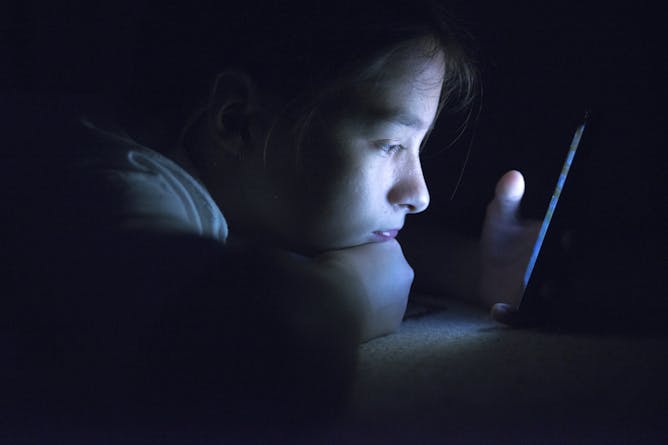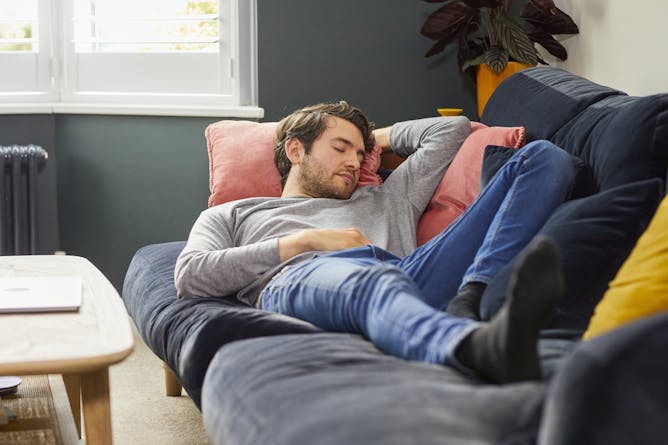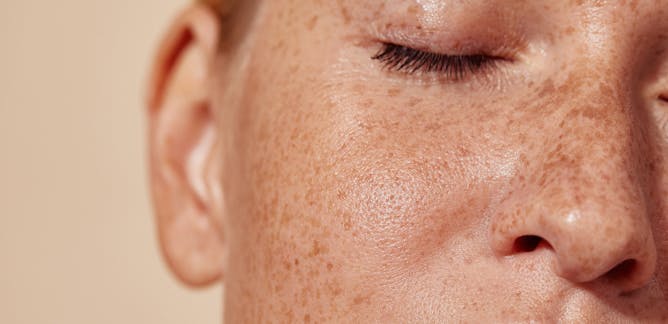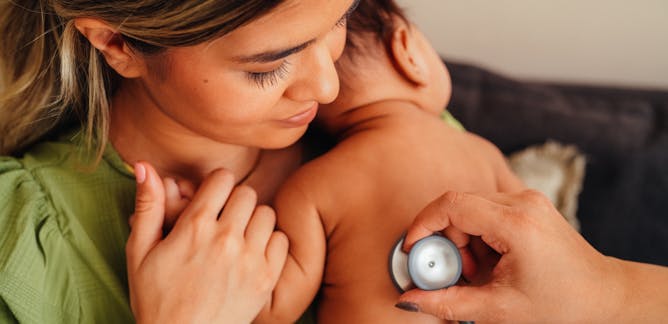|
|
|
|
As I write this, I’m closely monitoring reports of Hurricane Idalia’s track across central Florida into Georgia this afternoon after making landfall this morning. For background on how extremely warm waters likely contributed to this storm’s intensity, see this story by Florida International University hurricane scientist Haiyan Jiang from earlier this week, and a worthwhile explainer on what storm surge is from Penn State meteorologist Anthony C. Didlake Jr.
A lot has been written about how smartphones and social media can harm children’s mental health, but University of Washington physician Maida Lynn Chen hones in on a less-discussed problem: screens’ detrimental impact on sleep. As she notes, making good-quality sleep a high priority is central to overall mental and physical health, but the ubiquity of screens is contributing to widespread sleep deprivation, which can lead to serious health issues, such as
childhood and adolescent obesity. She lists a few good practices for getting good sleep in our screen-dependent lives – something adults should practice as well.
Anyone who has spotted a fox or coyote in suburbs or cities can attest to the growing presence of carnivores in recent decades, which also includes big animals like wolves, bears and mountain lions. University of Michigan conservation scientist Neil Carter makes a case for federal policies to encourage people to learn how to coexist with these animals, rather than killing them to control them. Pointing to a number of local projects, he notes that relatively
simple behavior changes, such as properly disposing of trash and erecting barriers to separate livestock from carnivores in risky places and times, can bring benefits to both wildlife and the communities they
inhabit.
Also in this week’s science news:
If there’s a subject you’d like our team of science editors to investigate, please reply to this email.
|

|
Martin LaMonica
Director of Editorial Projects and Newsletters
|
|

When teens can’t sleep, they often scroll online well into the night, which only exacerbates the problem.
ljubaphoto/E+ via Getty Images
Maida Lynn Chen, University of Washington
Exposure to screens before bedtime can contribute to chronic sleep deprivation, which raises the risk for anxiety, depression and even suicidal thoughts.
|

A federal policy could reduce instances of conflict between people and carnivores, like coyotes.
Jason Klassi/iStock via Getty Images
Neil Carter, University of Michigan
Setting guidelines for human coexistence with carnivores usually falls to local community leaders. An expert explains why the federal government should step in.
|

Short naps at the right time of day can benefit alertness and overall health in myriad ways.
Tara Moore/Digital Vision via Getty Images
Steven Bender, Texas A&M University
Naps can be rejuvenating and beneficial to attentiveness and overall health, but the length of naps and the time of day are key.
|
|
|

Kris Pardo, USC Dornsife College of Letters, Arts and Sciences
Astronomer Caroline Herschel’s work discovering and cataloging astronomical objects in the 18th century is still used in the field today, but she didn’t always get her due credit.
| |

Samia Almoughrabie, University of California, San Diego
Bacteria and lipids get a bad rap for causing breakouts and oily skin. But both play an essential role in helping your skin barrier stay strong against pathogens and insults from the environment.
|

Bradley Wade Bishop, University of Tennessee
The phrase ‘research data management’ might make your eyes glaze over, but it’s actually this behind-the-scenes work that allows for large-scale scientific discoveries and collaborations.
| |

Annette Regan, University of San Francisco; Flor M. Munoz, Baylor College of Medicine
Nearly 100,000 US children under age 5 are hospitalized each year for an RSV infection.
|
|
|
|
|
-
Srinivas Garimella, Georgia Institute of Technology; Matthew T. Hughes, Massachusetts Institute of Technology (MIT)
People aren’t the only ones harmed by heat waves. The hotter it gets, the harder it is for machines to keep their cool.
-
Guy German, Binghamton University, State University of New York
Recent research suggests blood vessels are the key to why fingers and toes turn pruny and pale after being submerged for a while.
-
Michael Brown, Smithsonian Institution
The largest ever giraffe tracking study shows how these massive animals are responding to human pressures across many different habitats throughout Africa.
-
Beth Cohen, University of California, San Francisco
Clinical trials have demonstrated the health benefits of cannabis for certain conditions, but many aren’t testing smoked or vaped forms. Research on cannabis smoke is raising concerns.
|
|
|
|
|
| | |
| | |
| |
| |

|
| |
| |
| |
| |
| |
| |
|
|
|
